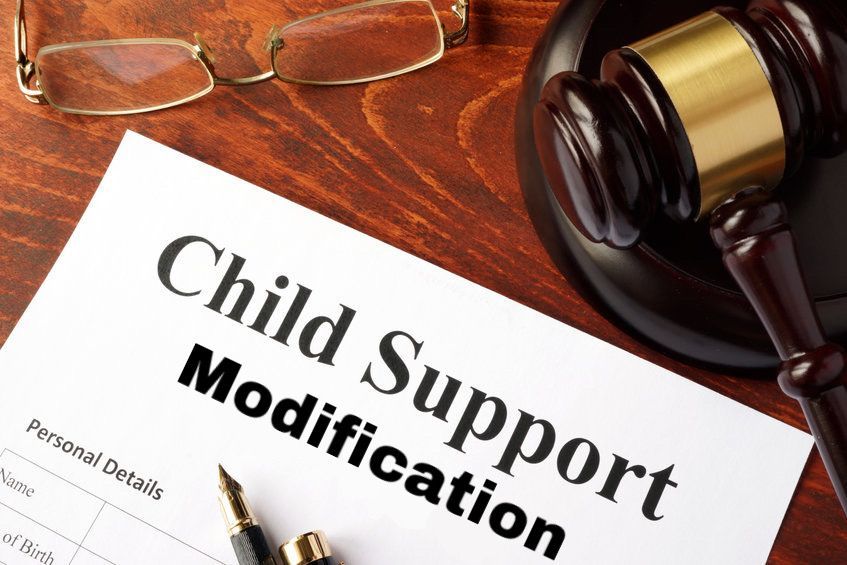Does Child Support Include Daycare?
No, basic child support does not automatically include daycare costs in most states. However, daycare expenses are usually added on top of regular child support payments when the parent caring for the child needs childcare to work or go to school.
This can get confusing fast. Many parents think their monthly child support check covers everything – but daycare often requires separate payments. This guide will walk you through how daycare costs work with child support, who pays what, and how to make sure you're not stuck with surprise bills.
What Basic Child Support Actually Covers
Child support starts with the basics. The money is meant to pay for food, clothing, and a place to live. Think of it as covering the everyday needs that keep a child healthy and safe.
Most child support payments cover housing costs like rent or mortgage, utility bills, groceries, and basic clothing. These are the things every child needs, no matter what.
But here's the catch – daycare isn't considered a basic need in most child support formulas. Why? Because not every family needs daycare. Some parents work from home. Others have family members who help watch the kids. The court can't assume everyone needs childcare.
What Gets Included in Your Monthly Payment
Your basic child support amount usually includes:
- Food and groceries
- Clothing and shoes
- Housing expenses (rent, mortgage, utilities)
- Basic school supplies
- Some medical insurance premiums
What Usually Costs Extra
These expenses typically fall outside basic child support:
- Daycare and childcare services
- After-school programs
- Summer camps
- Private school tuition
- Medical bills not covered by insurance
- Sports and activities
How Daycare Expenses Get Added to Child Support
If one or both parents can't care for their child because of work, then child support may cover the costs of daycare services, babysitters, nannies, or other childcare costs. But there's a process for this.
Courts don't just throw in daycare costs randomly. The parent who needs childcare has to show the court why it's necessary. This usually means proving they work, go to school, or are looking for a job.
The Work-Related Rule
Most states follow a simple rule: daycare only counts if it's needed for work. The childcare costs are usually added to the basic child support amount when the custodial parent needs daycare because of employment.
A parent can't claim daycare expenses if they're home all day. The court wants to see that childcare is truly needed – not just wanted.
How Courts Calculate Your Share
Here's how most courts split daycare costs:
- They look at both parents' incomes
- They figure out what percentage each parent earns
- Each parent pays their percentage of the daycare bill
For example, if one parent makes 70% of the combined income, they pay 70% of daycare. The other parent pays 30%. It's based on who can afford what.
Understanding Daycare as a Mandatory Add-On
In some states, daycare is called a "mandatory add-on." Childcare expenses are considered mandatory add-ons in New York, meaning courts must legally order child support payment to cover certain costs when the custodial parent needs childcare to work, look for employment, or attend school.
This means the court doesn't have a choice. If you need daycare to work, it gets added to the child support order. Period.
What Qualifies as Childcare
Courts accept different types of childcare:
- Licensed daycare centers
- Preschool programs
- Babysitters (even family members who get paid)
- After-school care
- Summer day camps
- Nannies
The key word is "licensed" or "paid." If grandma watches the kids for free, that won't count. But if you pay her a fair rate, it might.
Proving Your Childcare Costs
The custodial parent may have to show documentation of the costs if the non-custodial parent makes this request. Keep good records:
- Receipts from your daycare provider
- Canceled checks or bank statements
- Written agreements with babysitters
- Invoices from childcare centers
Without proof, you might not get reimbursed. Save everything.
How Rhode Island Handles Daycare in Child Support
If you live in Rhode Island, the rules are clear. The Rhode Island guidelines use an income shares model where adjusted gross income of both parents determines child support, and after that number is determined, daycare expenses are added onto that amount.
Rhode Island makes both parents share the cost based on their income. The formula isn't complicated, but you need to understand it.
The Rhode Island Formula Explained
If the husband makes $100,000 and the wife makes $50,000, the combined gross income is $150,000, so the husband makes 66 percent of the income and will be ordered to pay 66 percent of the daycare in addition to child support.
The math is straightforward:
- Add both incomes together
- Figure out each parent's percentage
- Apply that percentage to daycare costs
Work-Related Requirements in Rhode Island
Daycare must be work-related in order to have the other parent ordered to pay their fair share, and a summer camp could be considered daycare so long as it is being utilized so that a parent can work.
Rhode Island courts look at whether the childcare is reasonable and necessary. You can't send your child to the most expensive daycare in the state and expect the other parent to cover their share without question.
When Daycare Isn't Included in Your Order
Not every child support order includes daycare. Sometimes parents settle their case without thinking about childcare costs. Other times, the custodial parent doesn't work when the order is first entered.
There's no law requiring the non-custodial parent paying child support to pay any extra costs for daycare unless the court rules so, and daycare costs aren't usually part of basic child support awards.
What Happens Without a Court Order
If daycare isn't in your order, you have two choices:
- Pay for it yourself
- Go back to court to modify the order
You can't force the other parent to chip in without a court order. That's just how it works.
Going Back to Court for Daycare
If you are the child's primary conservator and believe the child support combined with your income doesn't meet the minimal reasonable needs of the child, including daycare expenses, you could go to court and ask the judge to modify your child support arrangements.
This takes time and sometimes costs money for legal help. But if daycare is breaking your budget, it might be worth it.
The Real Cost of Daycare Today
Daycare isn't cheap – and it's getting more expensive every year. Between January 2020 and September 2024, the price of daycare and preschool rose about 22%, and it's up 6% just since September 2023.
These rising costs hit families hard. Many parents spend more on daycare than they do on rent.
What Families Are Actually Paying
Respondents are spending 24% of their household income on child care on average, with 60% spending 20% or more of their income on childcare. That's a huge chunk of money.
Recent data shows:
- Average weekly daycare cost is $343, up 6.9% from $321 in 2023
- Average weekly nanny cost is $827, up 8% from $766 in 2023
- Parents report spending nearly a third (29%) of their savings on child care costs alone
Why This Matters for Child Support
When daycare costs this much, getting the other parent to help becomes critical. A few hundred dollars a month in daycare help can mean the difference between making ends meet and going into debt.
Common Questions About Daycare and Child Support
Can I Choose Any Daycare I Want?
Not exactly. The court wants to see "reasonable" costs. The childcare costs cannot be more than an amount the court believes is required to provide quality care from a licensed provider.
If there's a daycare down the street for $200 a week, but you choose one across town for $500, the court might only make the other parent pay based on the cheaper option.
What If My Ex Can Watch the Kids?
This gets tricky. It is important to know that if the judge thinks it is appropriate, he or she can consider the willingness and availability of the noncustodial parent to provide childcare personally when deciding whether childcare costs are necessary or excessive.
If your ex works from home and could watch the kids, the judge might not order them to pay for daycare. But if they have a full-time job too, you're probably safe.
Does Daycare Count for Taxes?
Yes! The IRS offers a Child and Dependent Care Credit. Expenses paid for the care of a qualifying individual are eligible if the primary reason for paying the expense is to assure the individual's well-being and protection so you can work or actively look for work.
This credit can save you money at tax time. Keep all your daycare receipts.
What About After-School Care?
Childcare during summer months, spring break, and some holidays can also qualify for childcare coverage, as can after-school programs.
After-school care counts just like daycare. If you need it to work, it should be covered.
How to Get Daycare Added to Your Support Order
If daycare isn't in your current order, here's how to fix that:
Step 1: Gather Your Documents
Collect everything that shows:
- Your work schedule
- Daycare costs (bills, contracts, receipts)
- Both parents' current incomes
- Why you need childcare
Step 2: File a Motion to Modify
You'll need to file paperwork with the court asking to change your child support order. In most states, you can do this yourself or hire a family law attorney to help.
Step 3: Show Why It's Necessary
There must be at least a ten percent change for a modification to occur unless the parties agree otherwise, and circumstances that may warrant modification include an increase in cost of daycare.
Be ready to explain why you need daycare and why the costs are reasonable.
Step 4: Attend Your Hearing
A judge will review your case. Bring all your documents. Be honest about your situation. The judge wants to do what's fair.
Planning Ahead: Including Daycare in Your Initial Order
If you're just starting the child support process, do yourself a favor – include daycare from the beginning. It's important to have foresight during child support cases to cover topics such as daycare that may raise such issues in the future to minimize future disputes and avoid financial distress.
What to Include in Your Agreement
When setting up child support , make sure the order addresses:
- How daycare costs will be split
- What happens when daycare costs change
- Whether receipts need to be provided
- How often payments are made
- What happens during summer and school breaks
When Circumstances Change
Kids grow up. What works when they're two doesn't work when they're twelve. When a child turns ten and goes to after-school activities instead of daycare, there's no need for the non-custodial parent to continue paying for daycare, and the best thing to do is attempt to renegotiate the amount.
Be ready to modify your order as your child's needs change.
Special Situations and Exceptions
Multiple Children in Daycare
Most daycare centers offer sibling discounts. Some courts factor this in. Make sure you're honest about what you're actually paying.
Daycare During Parenting Time
What if your child needs daycare during the other parent's parenting time? Who pays then? This should be spelled out in your order to avoid confusion.
Summer Camps and School Breaks
A camp during the summer could be considered daycare so long as it is being utilized so that a parent can work. But the camp must be reasonably priced and necessary.
Fancy sleepaway camps might not count. Regular day camps usually do.
Tips for Managing Daycare Expenses
Daycare costs can feel overwhelming. Here are practical ways to manage:
Keep Perfect Records
Save every receipt, every invoice, every payment confirmation. You might need them in court someday.
Communicate with the Other Parent
Before enrolling your child in daycare, talk to the other parent. Show them the costs. Get their input. This can prevent fights later.
Consider All Your Options
Look into:
- Employer-sponsored daycare assistance
- Flexible Spending Accounts (FSAs) for childcare
- State childcare assistance programs
- The Child and Dependent Care Tax Credit
Some employers include child care assistance for employees in their benefits package. Check with your HR department.
Plan for Cost Increases
Daycare gets more expensive every year. Build in a way to handle cost increases in your child support order.
When to Get Legal Help
Sometimes you need professional help. Consider talking to a divorce and family law attorney if:
- The other parent refuses to pay their share
- You can't agree on what daycare costs are reasonable
- Your child support order doesn't mention daycare at all
- You're being asked to pay more than your fair share
- The other parent wants to modify the order and you disagree
Legal help isn't always necessary, but it can save you money and stress in complicated situations.
Final Thoughts
Daycare and child support don't have to be a mystery. The basic rule is simple: daycare costs extra, but both parents usually share them based on income.
If you need daycare to work or go to school, the other parent should help pay for it – but only if it's in your court order. Don't wait until you're drowning in daycare bills to address this. Whether you're setting up child support for the first time or need to modify an existing order, make sure daycare is part of the conversation.
Keep good records, know your state's rules, and don't be afraid to ask for help when you need it. Your child deserves quality care, and you deserve a fair arrangement that doesn't break your budget.
If you're dealing with child support issues in Rhode Island, the experienced team at Inman & Tourgee can help you understand your rights and get the support your family needs. Call us at (401) 823-9200 to schedule a consultation.











